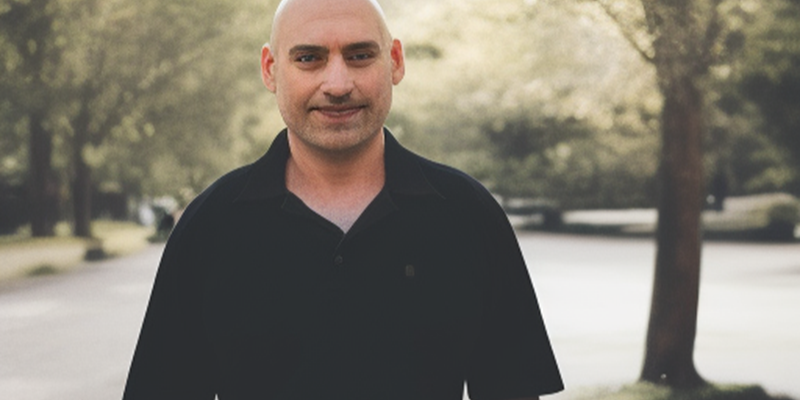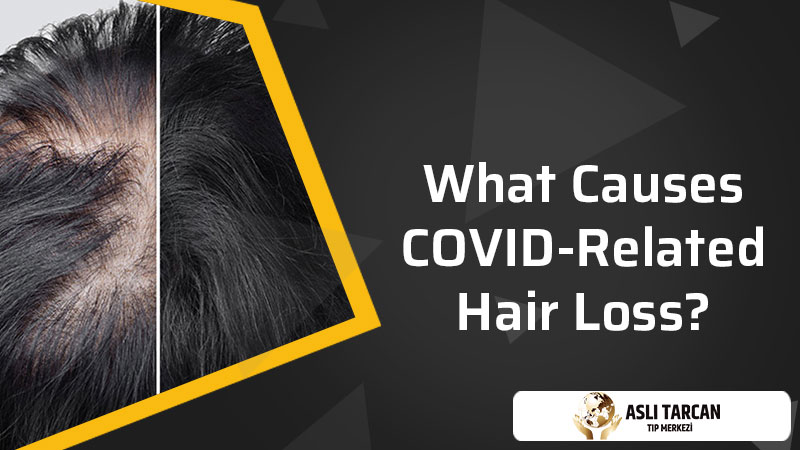What Causes COVID-Related Hair Loss?
What Causes COVID-Related Hair Loss? Fever is a frequent COVID-19 symptom. Some people notice significant hair loss a few months after experiencing a high fever or healing from an illness. But people with hair loss wonder what causes COVID-related hair loss. Hair loss can occur even though you have never had a fever or COVID-19. Emotional discomfort may also cause a greater number of hairs to shed than normal.
Many people mistakenly believe this is hair loss, but it’s simply hair shedding. Telogen effluvium is the diagnostic term for this form of hair loss. When a large number of hairs undergo the shedding process of the hair growth lifecycle at the same time, this occurs. More hairs can enter the shedding process as a result of a fever or illness. Hair shedding is usually visible two or three months following a fever or sickness. When you wash or brush your hair, a few strands of hair will fall out. Hair loss is usually visible two or three months following a fever or sickness. When you wash or brush your hair, a few strands of hair will fall out. Hair shedding will last anywhere from six to nine months before ceasing. The majority of people note that their hair starts to look natural again and that they avoid shedding.
Factors Of Risk
If you are asking what causes COVID-related hair loss, you are suffering from this condition. COVID-19-related hair loss is linked to several risk factors. The first is predisposition based on genetics. According to Dr. Khetarpal, some individuals can be severely ill and not suffer hair loss. While others can be mildly ill and experience serious hair loss, indicating that there is a hereditary predisposition. Iron, biotin, and vitamin D, in particular, play a role in nutrition.
Furthermore, they are aware that the body needs some nutrients to create hair. If you have a lot of iron in your system, your body would be able to maintain your hair better than if you’re anemic and have other problems. The body does not consider hair to be essential. So if the iron reserves are limited, it will divert those resources to the production of red blood cells. It isn’t going to be about growing hair.
COVID-Related Hair Loss
The question of what causes COVID-related hair loss has been the subject of research for many researchers. Several dermatologists have reported seeing COVID-19 patients with hair loss months after they recovered from the disease, especially telogen effluvium (TE), a type of transient hair loss. Hair loss, according to doctors, can not be caused specifically by COVID-19, but rather as a result of a shock to the body caused by a high fever and other symptoms. Hormonal imbalances, genetics, age, fatigue, other health problems, and treatment are all causes that may lead to hair loss. The most common form of hair loss in COVID-19 patients is telogen effluvium, which causes hair shedding all over the scalp.
Meanwhile, Shilpi Khetarpal claims that even patients who have not been exposed to COVID-19 can experience hair loss as a result of the pandemic tension. There are several pandemic-related concerns. ‘Financial strain, worry over sick family members, fear of catching the virus, social alienation, and improvements linked to working and learning from home are all factors to consider.’ Dr. Khetarpal continued, ‘We are seeing hair loss in non-COVID patients that seem to be linked to pandemic stress.’
According To Research
When we investigate what causes COVID-related hair loss, we reach the following conclusions. Androgenetic alopecia is a type of hair loss that occurs above both temples in both men and women. A research conducted in May 2020 looked at 175 patients who were hospitalized with COVID-19 and found that a large percentage of them had androgenetic alopecia. Another research compared balding characteristics in 336 men who were hospitalized for COVID-19 and 1,605 men who were hospitalized for non-COVID conditions. COVID patients have a much greater risk of hair loss, according to the report.
14 people reported signs of hair loss in a report conducted in November that looked at and examined late-onset COVID-19 symptoms in a small population of 63 people. While the possibility of a relationship between the two has yet to be proven, many have speculated that it may be related to depression and anxiety brought about by the illness. This form of transient hair loss is known as ‘Telogen effluvium,’ and it occurs while the body is under a lot of stress, such as pain, shock, or illness.
How To Handle Hair Loss Caused By COVID-19?
The reality is that there is no quick fix for these side effects. But there are a few steps you can do to manage them. ‘Patience is essential for patients with acute telogen effluvium or diffuse hair loss since it usually takes 3-6-9 months for them to recover. All of the hair, as well as its density, usually grows back. So there’s no reason to be concerned about going bald or looking for wigs online. Hair loss may become permanent (which is also treatable but takes longer) in some cases, particularly in those who avoid seeking care, and in some cases, a hereditary predisposition to patterned baldness (of the crown area) may be revealed. So it’s critical to get medical help as soon as possible, and it’s much more important not to indulge in highly marketed miraculous ‘overnight development’ promising potions,’ said Dr. Smriti Naswa Singh.
In a nutshell, it’s important to figure out what’s behind the hair loss, be patient (about 3-6 months), and stick to the treatment plan. If you are investigating the question of what causes COVID-related hair loss, you should also investigate the solution to this problem. Here are a few suggestions for preventing hair loss:
- Consume a diverse range of colors in your diet (rainbow diet).
- Exercise daily
- Good night’s rest.
- Relieve emotional tension (you can practice breathing exercises or meditation to tackle stress).
- Allow yourself days of physical rest (It’s not enough to clean every nook and cranny of the house every day).
- Don’t go overboard when it comes to hair disinfection.
- Don’t wash your hair too much with fine bristle combs.
- If you’re having trouble managing your hair loss, visit a dermatologist right away.
-
Which Vitamin Deficiency Causes Hair Loss the Most?
Hair loss is a common problem that affects millions of people worldwide, and one of the leading causes of hair loss is a deficiency in specific vitamins and minerals. While many vitamins are crucial for healthy hair, some deficiencies can cause more hair loss than others. You may wonder “which vitamin deficiency causes hair loss the most?”The most commonly linked to hair loss is vitamin D hair loss. Vitamin D is a fat-soluble vitamin that helps the body absorb calcium and is essential for bone health. However, recent studies have shown that low vitamin D levels are also linked to vitamin D hair loss hair loss. Studies have found that people with alopecia areata, an autoimmune condition that causes hair loss, have lower vitamin D levels than those without the state.

- Other vitamin deficiencies that can cause hair loss include vitamin B12, biotin, and vitamin E. Vitamin B12 is essential for producing red blood cells and the health of the nervous system. A deficiency in vitamin B12 can cause anemia, leading to hair loss. Biotin, also known as vitamin H, is necessary for the growth and maintenance of healthy hair. For more on “which vitamin deficiency causes hair loss the most?” please contact a hair specialist.



